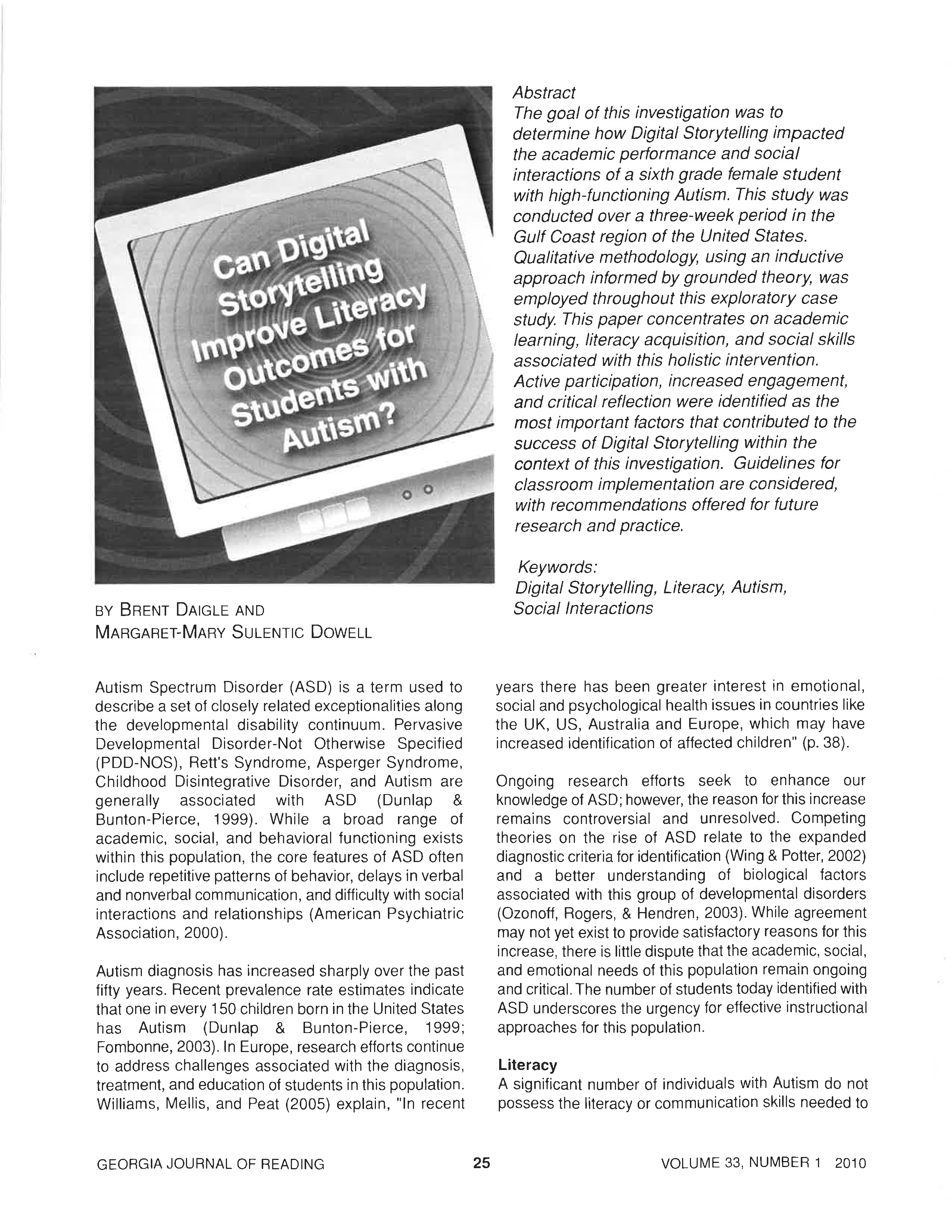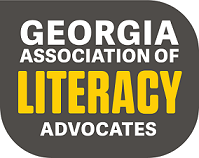Can Digital Storytelling Improve Literacy Outcomes for Students with Autism?
DOI:
https://doi.org/10.56887/galiteracy.73Keywords:
Digital Storytelling, Literacy, Autism, Social InteractionsAbstract
This investigation aimed to determine how Digital Storytelling impacted the academic performance and social interactions of a sixth-grade female student with high-functioning Autism. This study was conducted over three weeks in the Gulf Coast region of the United States. Qualitative methodology, using an inductive approach informed by grounded theory, was employed throughout this exploratory case study. This paper concentrates on academic learning, literacy acquisition, and social skills associated with this holistic intervention. Active participation, increased engagement, and critical reflection were identified as the most important factors that contributed to the success of Digital Storytelling within the context of this investigation. Guidelines for classroom implementation are considered, with recommendations offered for future research and practice.



